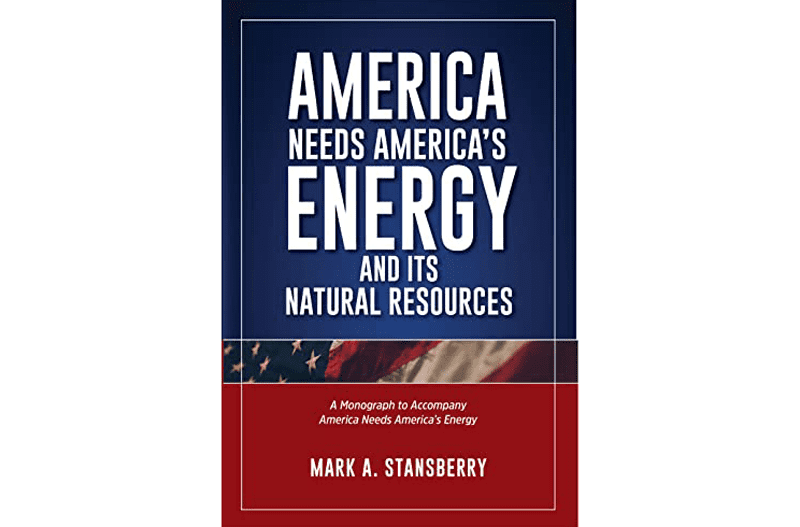In order to reach ultimate results for a strong energy future, it is my belief that we must embrace the past and empower the future. Energy literacy and understanding are consequential to the future success of the energy sector.
In 2012, the book I authored, America Needs America’s Energy, was released during the summer. During this decade of time, the advancement of energy, technology and innovation have come to the forefront. We, as a society, must together determine the future pathways for energy development.
In order to meet the challenges ahead, we need to be informed about natural resources and how they apply to our lives and to future generations. In this monograph, America Needs America’s Energy and Its Natural Resources, the natural resources addressed are: crude oil, natural gas, solar, wind, biofuels, nuclear and hydrogen.
This monograph is a tool for conversation and constructive debate, in order to achieve ultimate results for future generations. This writing is a continuation of the book, America Needs America’s Energy, with a special focus on comparing natural resources and how they supplement one another.
As stated in America Needs America’s Energy, “As the national debate over energy policy escalates, the tendency is to point fingers at companies in the energy business or a lack of will among elected officials to come to grips with the situation. It’s been them versus us, with “them” not always clearly defined. I contend, however, that for too long we have been wasting time blaming the energy industry or the government failure to adopt a national energy strategy when we, the people, should be responsible for creating the plan. As consumers of energy, we should drive the process, evaluating how we can best leverage our national resources here at home to assure long-term energy independence and security.”
Natural Gas. Natural gas will be at the forefront for many years ahead due to its availability, accessibility, affordability and its many uses.
As stated in America Needs America’s Energy, “For years, I have voiced my belief that natural gas reserves are critical to a strong U.S. economy and extremely important for America’s energy security. Natural gas is an abundant, clean fuel that has many domestic uses – from heating our homes to serving as an alternative to gasoline. It is the bridge fuel to our country’s energy sustainability…”
“Over the last few years, shale gas has become a major topic of discussion in the media for several reasons. Until recent years, natural gas was primarily produced from “conventional” reservoirs via vertical technology. “Unconventional” natural gas production includes hydraulic fracturing and horizontal drilling to extract supplies from tight sand formations and shale formations where natural gas is trapped. Due to technological advancements, shale formations have been discovered in numerous basins not only in America but around the world…”
The cons of natural gas findings in 2012: America currently lacks national infrastructure for compressed natural gas (CNG) use, converting vehicles to CNG is costly and, although cleaner than oil or coal, natural gas still contributes carbon dioxide.
The pros of natural gas included: Natural gas burns more cleanly than other fossil fuels, natural gas can be piped into homes to provide heating and cooking, and to run appliances. It can be used as a fuel for vehicles, and natural gas is relatively abundant, clean-burning and easy to distribute.
For updates and research, go to the monograph, America needs America’s Energy and Its Natural Resources.
Mark A. Stansberry, Chairman of The GTD Group, is an award-winning author, columnist, film and music producer, radio talk show host and 2009 Western Oklahoma Hall of Fame inductee. Stansberry has written five energy-related books. He has been active in the oil and gas industry for over 44 years, having served as CEO/President of Moore-Stansberry, Inc., and The Oklahoma Royalty Company. He has served as Chairman of the Board of Regents of the Regional University System of Oklahoma, Chairman 2016-2017 of the Gaylord-Pickens Museum/Oklahoma Hall of Fame Board of Directors, Lifetime Trustee of Oklahoma Christian University, and Board Emeritus of the Oklahoma Governor’s International Team. He has served on several public and private boards.
Oil and gas operations are commonly found in remote locations far from company headquarters. Now, it's possible to monitor pump operations, collate and analyze seismic data, and track employees around the world from almost anywhere. Whether employees are in the office or in the field, the internet and related applications enable a greater multidirectional flow of information – and control – than ever before.








